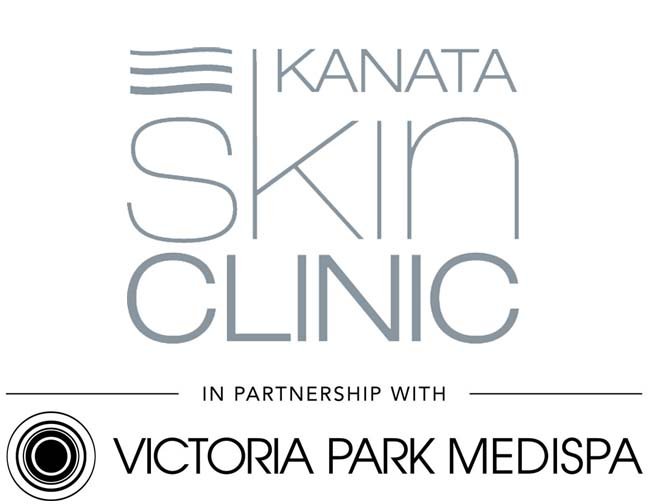Answering The Most Common Questions About Juvederm Dermal Fillers
Have you ever wondered how some celebrities seem to age flawlessly while still looking totally natural? In many cases, it’s all thanks to Juvederm, one of the beauty industry’s best-kept secrets for reducing the effects of aging, plumping and lifting the skin for a more youthful and defined face.
This article will discuss the benefits of Juvederm and how it differs from other fillers and injectables while answering some of the most popular questions about this revolutionary treatment.
What Is Juvederm and How Does It Work?
Juvederm is an injectable dermal filler gel used to subtly plump the skin, replenishing lost volume in localized areas of the face and neck. The gel is composed primarily of Hyaluronic Acid, a sugar substance that occurs naturally in our bodies to maintain the skin’s volume and retain moisture.
Unlike other dermal fillers, Juvederm’s smooth formula prevents bumps and rippling. The gel is inserted just below the superficial layers of the skin with a fine needle. Since Hyaluronic Acid is naturally occurring, your body will eventually break the gel down and reabsorb it safely and naturally.
The formulas for this innovative treatment are very pure, ensuring more predictable and natural-looking results than fillers have been able to offer in the past.
What Areas Does Juvederm Target?
Juvederm can treat several areas on the face and jaw, replacing lost volume in order to give your skin a younger, plumper and more refreshed appearance. The most commonly treated areas are the mouth and chin, cheeks, lips, and the chin and jawline. Juvederm effectively treats wrinkles and furrows such as smile lines, vertical lip lines and marionette lines (extending from the corner of the mouth to the chin).
Juvederm’s benefits go beyond simply reducing the appearance of aging. Although it’s slightly less well-known than Botox, Juvederm can also be used to subtly plump and define the lips, cheeks and jawline, resulting in a natural-looking finish.
Types of Juvederm:
Depending on what you’re targeting with your Juvederm treatment, your doctor can choose between several different formulas. Each has a different thickness and viscosity in order to treat specific spots. This can be discussed with your doctor during your consultation, so you can determine which formula best suits your needs! The types of Juvederm include:
Volbella
Juvederm’s Volbella formula is designed specifically for the lips and surrounding area. When injected, it fills in lip lines and wrinkles while the hyaluronic acid retains moisture, resulting in natural-looking improvements that can last for up to a year.
Volift
Juvederm Volift is used to correct moderate to severe wrinkles and folds, and to plump the skin in hollow areas. Results with Volift can last for up to 18 months. Patients have said that it causes less pain during injection and even reduced swelling during recovery.
Voluma
Juvederm Voluma is administered deep into the cheek tissue to give your face a lift and a more youthful contour. Patients report looking up to 5 years younger after just one treatment. Results are proven to last up to 2 years, longer than any other Juvederm formula.
Benefits of Juvederm Over Other Dermal Fillers
It’s Long Lasting
Juvederm results can last for up to two years, depending on the formula you use.
Immediate, Natural Results
You will begin to see amazing results immediately after your Juvederm treatment. However, the full results may not be visible for up to two weeks while the Juvederm settles into your skin. Juvederm aims to produce subtle results that look completely natural.
Zero Downtime
There is absolutely no downtime required after your Juvederm treatment. You can return to work or other normal activities immediately after your appointment, with only mild redness or soreness at the injection sites. This should subside after a day or two.
There may also be some faint bruising in the area, which normally clears up in less than a week. If you are someone who bruises easily, you could consider booking your appointment on a Friday, so you can take the weekend to relax and recover fully.
Non-Allergenic
People with allergies to other dermal fillers tend to have a high tolerance for Juvederm treatments since hyaluronic acid is a naturally occurring substance. If you are sensitive to other fillers, Juvederm just may be the answer to your woes.
How Is Juvederm Different from Botox?
Juvederm and Botox are used to treat similar problems, however, they differ in the way they function and the areas they treat. While Botox aims to temporarily relax the muscles in your face, Juvederm uses hyaluronic acid to plump the skin.
Typically, Botox is used to treat wrinkles around the eyes and forehead. It can also be used to help prevent a downturned mouth and necklace lines. If you are looking to treat mild wrinkles that appear on movement, like laugh lines, brow furrows or crow’s feet, you may be interested in exploring Botox.
Juvederm, on the other hand, works best for deeper wrinkles and furrows that appear around the mouth and down to the chin. It’s also good for filling the hollows under your eyes, shaping and contouring your lower face, lips, cheeks and jawline and for restoring lost volume in general. Juvederm works more quickly than Botox and lasts much longer!
What to Expect Before and During the Treatment
We know what you really came here to ask: Does Juvederm hurt? Of course, a little discomfort is unavoidable – we are still talking about injections, after all.
However, Juvederm treatments use an ultra-fine needle, and a topical numbing cream will be applied pre-treatment to make the process as smooth and enjoyable as possible. In fact, the bulk of your appointment will be spent waiting for the numbing cream to set in! All in all, your appointment will take anywhere from 35 to 60 minutes, depending on the size and number of the treatment areas.
Juvederm also incorporates numbing agents like lidocaine directly into its formulas, resulting in a more comfortable experience for you, both during and after your appointment. You’ll notice less redness and irritation at the injection sites during recovery than you would with other dermal fillers.
In the three days before your appointment, try eating at least one cup of fresh pineapple or pineapple juice per day to reduce the likelihood of experiencing any side effects. Pineapple contains an enzyme that helps prevent bruising and swelling. To prevent bleeding or bruising, avoid taking Aspirin or Motrin, Vitamin E, Fish Oil, Ginko Biloba, St Johns Wart, Ginseng, or Garlic for ten days prior to your appointment.
Recovery and Aftercare
Following these simple guidelines in the days and weeks following your Juvederm Treatment might just be the difference between a good result and a great one.
Avoid drinking alcohol or subjecting yourself to excessive heat like saunas, hot showers, or even hot stoves. These may cause the blood vessels to dilate, resulting in unnecessary bleeding and bruising. You should also avoid strenuous exercise immediately after the procedure or anything that may raise your blood pressure and pulse, which can also cause bruising and swelling.
If you experience any bruising, avoid direct sunlight and keep a bottle of sunscreen on hand. Sunlight can cause permanent discoloration after bruising. If you’re treating your lips, avoid drinking from a straw for the first few hours after your treatment. You can apply makeup after the procedure, as well as cold compresses to reduce any swelling and bruising.
Note that any bumps or marks from the needle will disappear after a few hours.
Am I A Good Candidate for Juvederm?
If you want to improve the appearance of fine lines and wrinkles, replenish or lift hollow areas of your face and neck or enhance the size and shape of your lips, ask your doctor about Juvederm. To be considered an ideal candidate, you should be in good physical and emotional health with realistic expectations. Juvederm produces smooth, subtle and natural-looking results – if you’re looking for a more dramatic look, another treatment might better suit your needs.
It’s important to remember that Juvederm is not a solution for severe scarring or thin or loose skin. You may also want to consider alternative treatment options if you’re taking antibiotics, heart medication or other drugs, have certain medical conditions or neurological diseases, severe allergies or skin infections on the treatment area. Juvederm is not ideal if you are nursing or pregnant.
The Bottom Line
Winter is finally on its way out, and before you know it, you’ll be hitting the beach. What better way to make sure your skin is summer-ready than to book a Juvederm treatment?
Aging is a natural part of life, but you don’t have to feel insecure about your changing skin. Juvederm fillers deliver long-lasting results that look totally natural, lasting up to two years. With summer on the way, there’s never been a better time to incorporate Juvederm into your anti-aging routine.
Book a consultation at the Kanata Skin Clinic to find out if Juvederm is right for you!

